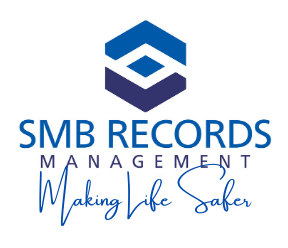![]()

Recent study’s show
UK businesses are throwing away mountains of waste including 167.8 million pieces of paper EVERY DAY – of which almost 23.5 million aren’t recycled.
New research into business environmental habits found that 14% of the UK’s 5.7 million companies, employing 31.4 million staff, fail to provide any recycling facilities.
Yet, the study found that in an average day, each employee throws away trash including six pieces of paper, three pieces of cardboard and three food wrappers.
And with ample consumption of hot and cold beverages in British offices, the environment is seeing more than its fair share of spiralling waste.
Drink dispensers are to blame for much of the waste, with almost 30 million plastic cups thrown away every day – that’s an average two per worker – but 4.1 million of these are not recycled, according to the survey by Printerland.co.uk.
Plastic bottles are another carelessly discarded item, with 33.9 million in office bins each day, while coffee cups are chucked by 14.6 million employees, who sup two on average each day.
Over 9.5 billion aluminium drinks cans are produced every year but these can be recycled in under 60 days to make more cans or turned into aeroplane parts or bicycles.
However, cans are being thrown away at the rate of 50.9 million a day, with 7.1 million going to landfill.
But as well as the physical items being tossed away, there’s the energy wasted by devices such as computers being left on while not in use.
Kilowatt per hour (kWh) (that’s 1,000 watts used each hour) is the unit of measurement of an appliance’s usage, with the current average national business cost of this, 17.5 pence.
The survey also found that 12% of staff NEVER switch their computers off.
Over the year this equates to 729.3 million kWh of energy wasted, or £127.6 million – enough to power 185,113 average UK households for the whole year.
Only 37% of UK businesses have an environment policy in place, while 9% have a carpool program and 7% have nominated a monitor to check lights, electronic equipment and heating are not left on when not in use.
Chris Ralph, IT manager at Printerland.co.uk, said: “Our research has been a bit of an eye-opener for us and we’ve already started to make changes in order to bring our own energy consumption down.
“As well as making sure you recycle as much as possible, there are some simple things you can do around the office, such as putting electronic devices on standby, as this would make a positive impact on the environment.”
Businesses can reduce, reuse and recycle to save on energy and unnecessary landfill usage.
Facts about Paper and Paper Waste
- As we speak, more than 199 tons of paper has already been produced.
- It takes an average of 5 liters of water to produce one piece of A4 paper.
- 93% of paper comes from trees.
- 50% of the waste of businesses is composed of paper.
- To print a Sunday edition of the New York Times requires 75,000 trees!
- Recycling 1 ton of paper saves around 682.5 gallons of oil, 26,500 liters of water and 17 trees.
- Packaging makes up 1/3 or more of our trash.
- Paper accounts for 25% of landfill waste and 33% of municipal waste.
- Lessening of paper usage was predicted due to the electronic revolution. It didn’t happen. Demand for paper is expected to double before 2030.
- Every tree produces enough oxygen for 3 people to breathe.
What can you do from your end to reduce paper pollution and waste?
- Recycle all your paper waste.
- Be a conscious consumer and buy “100% post-consumer waste recycled”. Buy recycled paper materials or materials that came from sustainable managed forests.
- In the office, reuse paper. If you’ve only used one side for example, collect them instead of throwing them away. You can bind these sheets and make a notebook using the other side. This small effort reduces paper waste by 50%
- If you already have a scanned copy of a file, don’t print it anymore unless really needed.
- Use email instead of paper when communicating with clients and customers.
- Reduce the use of paper cups and disposable paper plates by keeping reusable items in the office pantry.
- Encourage your office mates and friends to recycle their paper by putting them in recycling bins.
- Insist on “Process Chlorine Free” paper materials.
- Buy products with the least paper packaging. Encourage businesses that follow environment friendly practices.
- Take advantage of the latest technologies like tablets, computers and smart phones to keep your files and notes.
As a consumer, the way you use and dispose of paper and other paper products greatly affect our paper waste. These small efforts on your part will be a valuable contribution in the resolution of our pollution problems today.
Start getting it right, get in touch for a quote on to recycle your paper, IT, and branded items.
We get it right, because we care.







